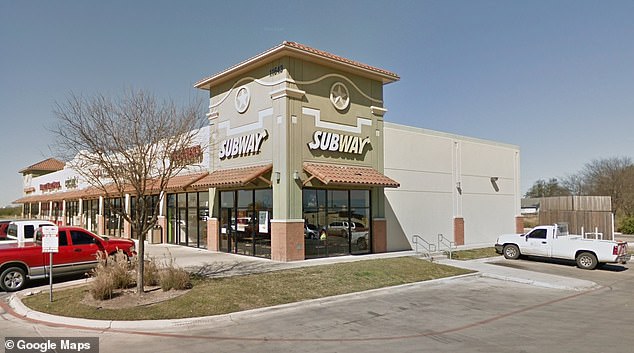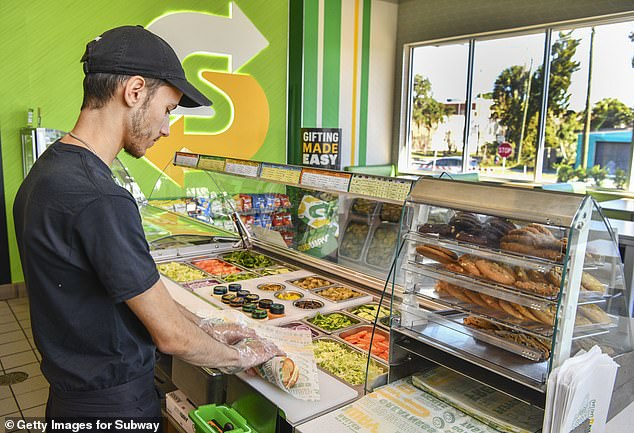A Subway franchisee that operates 48 restaurants has filed for Chapter 11 bankruptcy, putting the locations at risk of closure.
Texas-based River Subs lost a $3 million wrongful death lawsuit last year after one of its restaurant managers was shot to death by her ex-boyfriend outside a subway in San Antonio.
The company did not give a reason for the bankruptcy filing, but it came just eight days after losing an appeal of the decision.
Marisela Cadena, 43, was apparently denied a request to transfer to another location three days before she was murdered by Andrew Muñoz in 2020. Restaurant business reported. Later he committed suicide.
Her family filed a lawsuit in a Texas court in 2021, claiming that River Subs failed to provide her with a safe place to work despite knowing she was at substantial risk of violence against her.
Marisela Cadena, 43, was apparently denied a request to be transferred to another location three days before she was killed by Andrew Muñoz in 2020.
An arbitrator ruled in favor of the family in April of last year.
Arbitrator Carlos Cortez said: “While Muñoz, the assailant, shares the overwhelming percentage of responsibility for Cadena’s death, had it not been for the defendant’s negligent acts and omissions, Cadena would not have been killed.”
River Subs appealed the decision, but lost the appeal earlier this month.
According to court documents, the company listed both assets and liabilities between $1 million and $10 million, and the bankruptcy filing is designed to reorganize the business.
The franchise was founded in 1991 by Martha Jordan, Cathy Amato and Rick Riley. While Riley retired in 2021, Jordan and Amato continue to operate the business.
In 2012, River Subs peaked with a total of 69 restaurants in Texas, according to court documents.
But since then it has closed 21 of these locations due to the Covid-19 pandemic and ‘restaurant saturation’.
The company generated less than $30 million in sales last year and employs 454 workers.
Amato and Jordan have worked on several Subway franchisee associations and billboards, and the company said in court documents that it “has continually employed majority minority and low-income team members and developed them into future Subway leaders.” “.
Subway itself has battled store closures for nearly a decade, amid weak unit sales and high operating costs.
The sandwich giant has closed around 7,000 restaurants across the United States since 2015.
This comes amid a series of restaurant and fast food closures across the country, and particularly in California.
Earlier this year, Governor Gavin Newsom introduced a $20 an hour minimum wage for fast food workers in the Golden State.

A Subway franchise that operates 48 restaurants filed for Chapter 11 bankruptcy protection (Photo: The place in San Antonio where Marisela Cadena was murdered)

Subway has battled store closures for nearly a decade, amid weak unit sales and high operating costs.
Nearly 10,000 positions at chains from Pizza Hut to Burger King have been cut since the law took effect April 1, according to a report from a state trade group.
On top of that, chains have been closing restaurants, including beloved Mexican chain Rubio’s Coastal Grill, which earlier this month filed for Chapter 11 bankruptcy and closed 48 locations in the state.
The California Business and Industrial Alliance (CABIA) criticized Newsom for pushing through the law, which also meant businesses in the state had to raise prices.
That’s 25 percent more than California’s standard minimum wage of $16 an hour, which went into effect in January.

